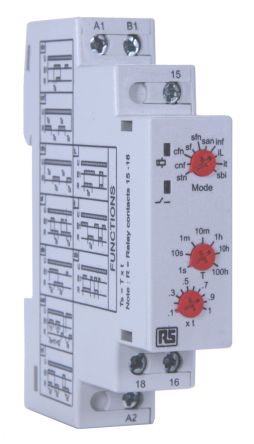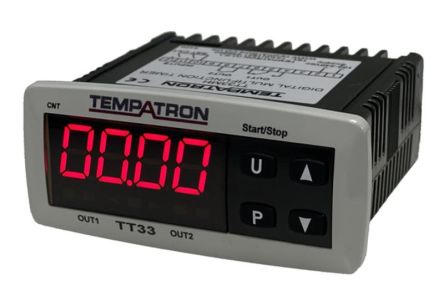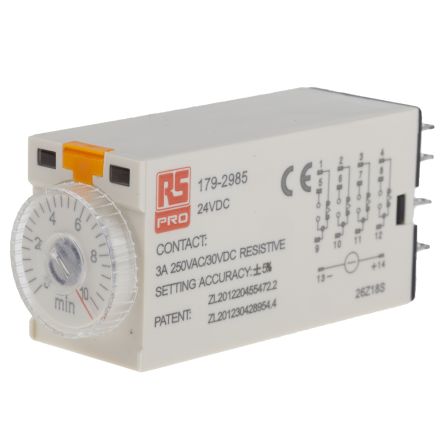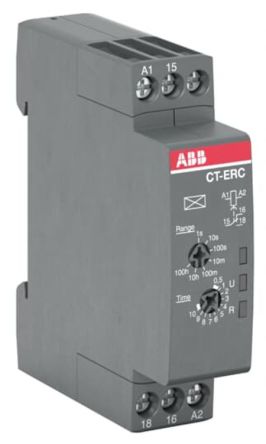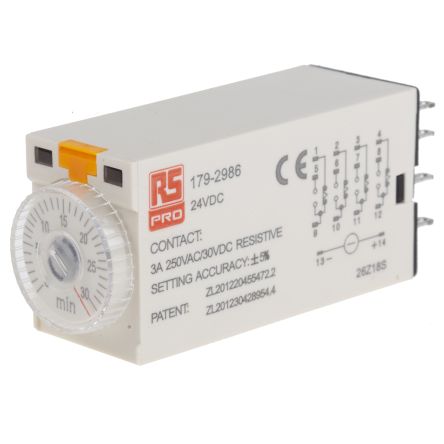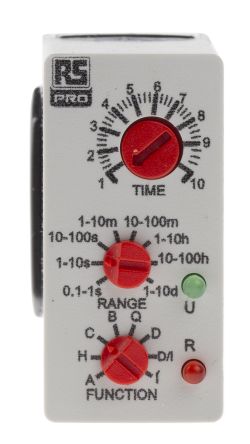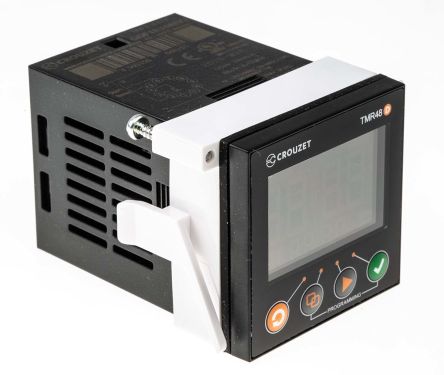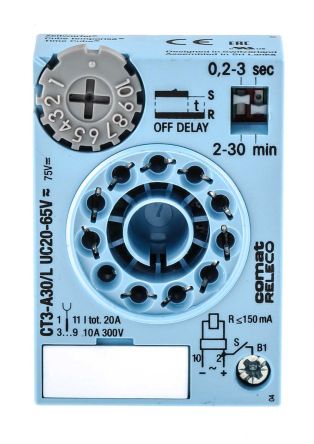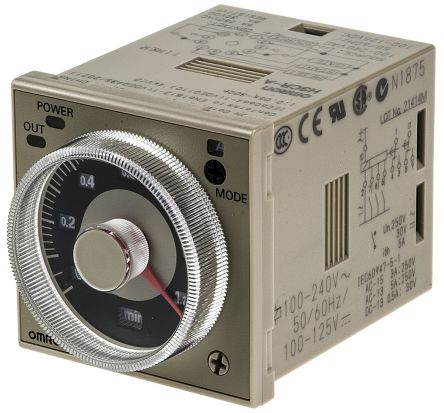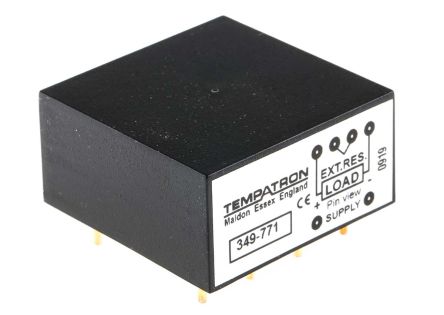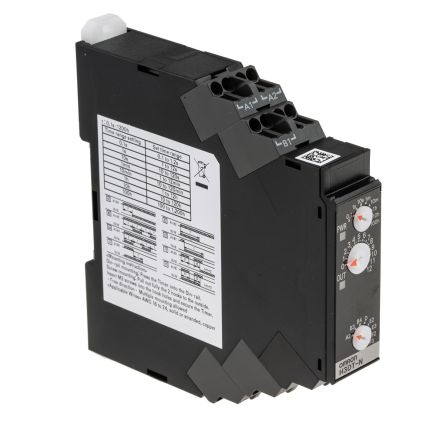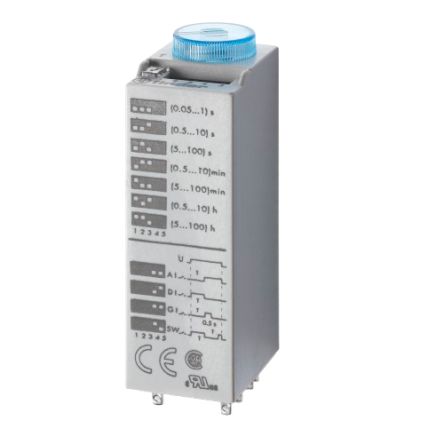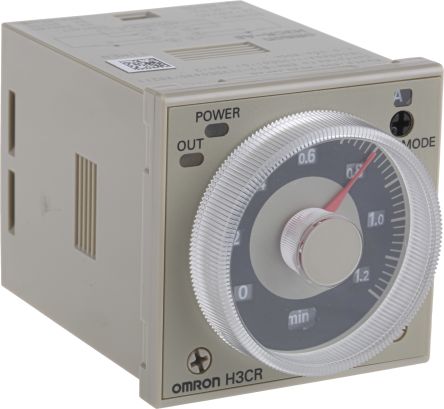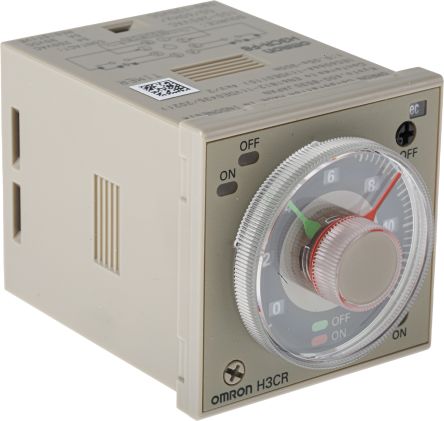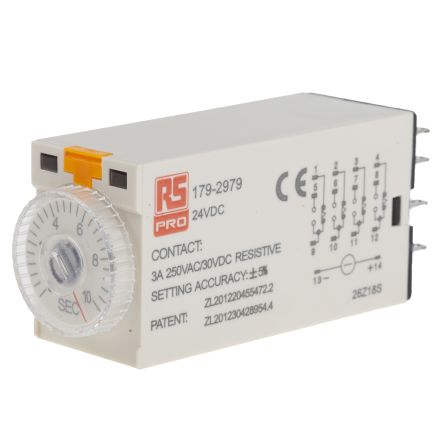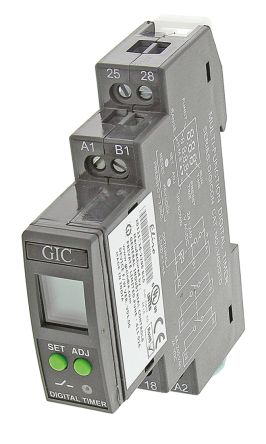- Automation & Control Gear
- Cables & Wires
- Enclosures & Server Racks
- Fuses & Circuit Breakers
- HVAC, Fans & Thermal Management
- Lighting
- Relays & Signal Conditioning
- Switches
- Batteries & Chargers
- Connectors
- Displays & Optoelectronics
- ESD Control, Cleanroom & PCB Prototyping
- Passive Components
- Power Supplies & Transformers
- Raspberry Pi, Arduino, ROCK, STEM Education & Development Tools
- Semiconductors
Timer Relays
A timer relay is a control relay with a time delay function built in. They serve as a combination of an electromechanical output relay and a control circuit, in which contacts can be opened or closed before or after a pre-selected timed interval. Relays can be normally open or normally closed and can be used to delay timed functions from milliseconds to hours or even days.
Understanding Timer Relay vs Electromechanical Relay
The difference between a timer relay or time delay relay and electromechanical relay is that when the output contacts open or close. On a conventional control relay, the contacts are opened or closed when a voltage is applied and removed from the coil, however, on a timer relay switch the contacts will open or close before or after an intentional time period. When choosing the right timer relay, it is important to consider the kind of delay required for your application.
Types of Timer Relays
The most common timing function of delay relays are:
- On Delay Timer (Time delay starts on the application of voltage): The on delay timer starts on the application of voltage. Once the preset time elapses, the contacts change state. This type of timer relay is often used in applications requiring a delayed start, such as in HVAC systems or industrial machinery.
- Off Delay Timer (When a voltage is applied the relay is ready to accept a trigger): When a voltage is applied, the relay is ready to accept a trigger. Once triggered, the relay remains activated for the preset time before returning to its original state. Off delay timers are commonly used in lighting controls and motor shutdown sequences.
- Single Shot Timer Relay (One-shot): Also known as a single shot timer, this relay triggers an output for a single, defined period when activated. It is used in applications where a one-time action is needed, such as in alarm systems or automatic door openers.
- Interval On Timer Relay (Interval): Also called an interval on timer, the interval timer relay provides a timed output for a specified interval after activation. It is used in cyclic operations and industrial automation processes to control equipment for set periods.
- Flasher Timer Relay (On First / Off First): This relay alternates between on and off states, creating a flashing effect. It can be configured to start with either the on or off state. Flasher timer relays are used in signalling applications, such as indicator lights and warning systems.
- Repeat Cycle Timer Relay (When a voltage is applied the relay contacts change state and the timer starts): When a voltage is applied, the relay contacts change state and the timer starts, repeating the cycle continuously. This type of timer relay is ideal for applications that require repeated on/off cycles, such as in irrigation systems or repetitive manufacturing processes.
- Digital Timer Relay: A digital timer relay offers programmable timing functions with high accuracy and flexibility. These relays are used in complex applications requiring precise timing control, such as in laboratory equipment and advanced industrial systems.
It is important to understand the difference between the types of the timer delay relays, considering what should initiate the delay and if it should start at the same time as the application, as well as when the voltage is released.
Applications of Timer Relays
Delay relays are typically used in industrial applications and OEM equipment play an important role for many industrial processes such as small panel or sub-panels requirements.
- Lighting circuits: Timer relays are used to control lighting circuits, ensuring lights are turned on or off according to a set schedule. This helps in energy conservation and enhances security in commercial and industrial settings.
- Motor start control: Time delay relays are essential in motor start control applications, where they help in the sequential starting of motors to prevent inrush current, thereby protecting the electrical system and ensuring smooth operation.
- Sensitive equipment: Timer relays protect sensitive equipment by providing delayed start or shutdown sequences. This is crucial in preventing power surges and ensuring the longevity and reliability of the equipment.
- Safety control: In safety systems, timer relays ensure equipment is turned on or off at the correct time to prevent accidents. For instance, an off delay timer can shut off machinery if it is left unattended, reducing the risk of operator injury.
- Conveyor belt sequence delay: Repeat cycle timer relays are used in conveyor belt systems to automate the process, ensuring items are moved in a controlled and timed sequence. This improves efficiency and reduces the risk of jams and damage to the conveyor system.
Buying Timer Relays: Ordering & Delivery
RS is a trusted supplier and distributor of a comprehensive range of timer relays, including on delay timers, off delay timers, digital, single shot, repeat cycle, flasher, interval, and more. We stock a variety of industry-leading brands such as: ABB, Schneider Electric, Omron, and our in-house brand, RS PRO.
To place an order online, simply browse our extensive catalogue, where you can filter and select your preferred products based on your specifications. RS Singapore offers fast delivery of timer relays. For more details on delivery services and fees, please refer to our Delivery Page.
Popular Searches
Related links
- Siemens 3VA Series Time Delay Relay, 24V dc
- Legrand DIN Rail Mount Time Delay Relay 0.1-360000s
- Siemens 3VA Series Time Delay Relay, 230V ac
- Siemens 3VA9988 Series Time Delay Relay 1-Function
- Siemens 3VA9988 Series Time Delay Relay 1-Function
- Siemens 3VA9988 Series Time Delay Relay 1-Function
- Siemens Time Delay Relay 2-Contact 1-Function, SPDT
- Siemens Time Delay Relay 2-Contact 1-Function, SPDT

